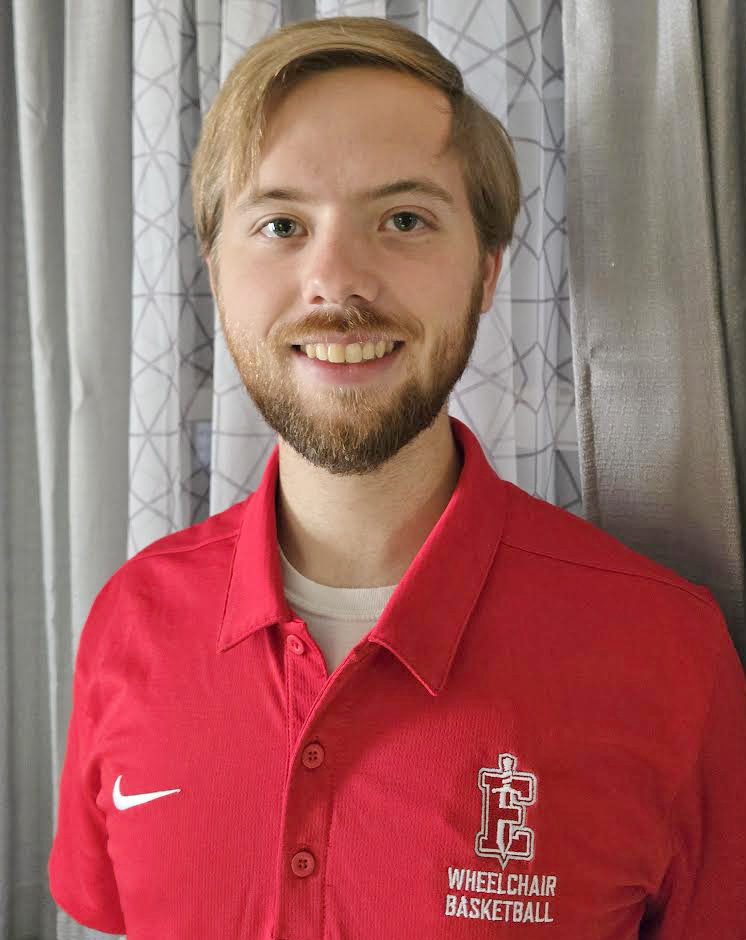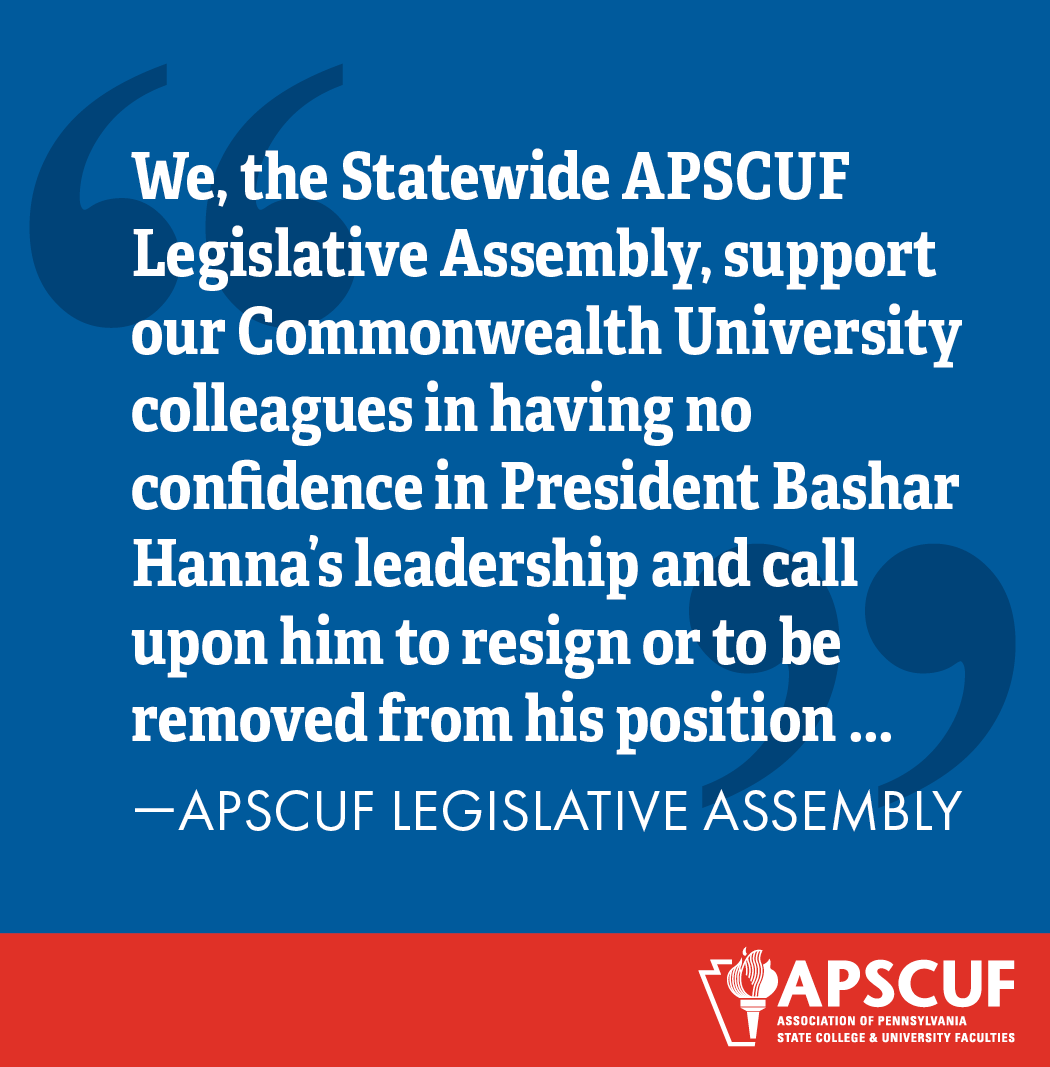Blog
A roundup of faculty and coach accomplishments: 2024–25
Over the last year, many of our APSCUF members have been recognized for their work. Here is a showcase of some of their accomplishments.
From Commonwealth-Bloomsburg, Susan Kocher picked up her 400th win as head coach of Huskies softball.
PennWest California art Professor Jim Bové went to the arctic and came back with a message about cross-discipline science, technology, engineering, art, and math (STEAM) instruction.
Cheyney University’s Chef Ian Baker shared some of his experience teaching students at the Cheyney Grille.
PennWest Clarion Assistant Professor Natasha Dias, adviser to the Clarion International Association, helped organize and host the 18th annual cultural night. Also, PennWest recognized her with a Keeper of the Flame award.
East Stroudsburg University’s Andy Gavalis, assistant professor of reading, and Ahmed Yousof, associate professor of art, media, and design, gave a presentation to faculty and students about neurodivergence in the classroom.
Associate Professor Camille Dempsey is the inaugural director of the new Center for Artificial Intelligence at PennWest Edinboro.
Indiana University of Pennsylvania Professor Alida Merlo marked her 30th year teaching criminology.
Professor Peg Speirs of Kutztown University was named Pennsylvania Art Education Association’s Outstanding Higher Education Art Educator in the fall.
Commonwealth-Lock Haven Professor Rick Schulze spoke about rural HIV outreach and prevention strategies at the PA Community and Public Health Conference.
Nick Mattis, the new cross-country coach of Commonwealth-Mansfield, led both the men’s and women’s teams to the PSAC championship.
Millersville Professor Dominique Didier led students in a hands-on learning experience where they sheared sheep.
Associate Professor Dhiman Chattopadhyay from Shippensburg University forged academic connections in India, enhancing student learning of conflict journalism.
Professor Sam Thangiah of Slippery Rock University showed off new holograms and talked about their usefulness.
For the seventh time in eight seasons, Pennsylvania State Athletic Conference named Steve Mazurek women’s swim coach of the year. PSAC also awarded him the title of men’s swim coach of the year.
Want to share a member accomplishment? Tag APSCUF on social media or email .
—Ian Hall,
APSCUF intern
Intern ‘honored’ to work with APSCUF

Edinboro student Ian Hall will intern with APSCUF’s government-and-communication department through August. Click here to learn more about APSCUF internships. Photo/Submitted
My name is Ian C. Hall. I am a student at PennWest Edinboro studying secondary education with a concentration in mathematics. I have done debates and a few presentations during the short time I have spent on campus thus far. I also work with the campus’s wheelchair basketball team, where I have learned a variety of skills and diversified my perspectives.
I am honored to be working with APSCUF as their summer intern. As an education major, all aspects of learning are important to me. This includes ensuring the rights of students and faculty are protected. This is the goal of APSCUF. APSCUF has many of the same values that I hold strong, and I am looking forward to contributing to a cause that I wholeheartedly agree with. This internship is exactly what I was looking for, and I am excited to start.
—Ian C. Hall,
APSCUF intern
See Dr. Kenneth M. Mash’s remarks to the Board of Governors – April 10, 2025
The April 10 Board of Governors meeting streamed via YouTube. Below are Dr. Kenneth M. Mash’s comments as prepared.
Chair Shapira, Interim Chancellor Fiorentino, governors, presidents, and guests,
I am Ken Mash, and I am president of the Association of Pennsylvania State College and University Faculties, the union that represents the faculty and coaches at our 14 great campuses.
Each semester, I do my best to visit all of the campuses, to meet with my colleagues, update them on what is happening in the Capitol and with the System, and to listen to their concerns. Those concerns vary by campus, but yet for the last couple of years there has been one consistent theme.
Governors, the faculty are just flat-out exhausted. Those at the consolidated campuses are exhausted from the shifting priorities, the shuffling of departments, the changes to curriculum, the lack of appropriate technology, and consistently being asked to do more and more and more with less.
Our faculty across the campuses are exhausted by ideas that do not seem fully thought through that emanate from the System. They are exhausted by the fact that their campus administrators also seem to not understand the dictates, or they perhaps seem to be engaged in an academic version of the children’s game “telephone” where the message gets changed just so slightly by each person who delivers it — until after some turns, the message is completely incomprehensible.
Our faculty are exhausted because of years of hiring freezes.
By the blame-shifting for drops in enrollments while they do not feel that they are being adequately supported.
By the expectation that as universities make cuts that they will pick up the slack. By the sense that all decisions are being driven by budgetary concerns without regard to pedagogy.
By the lack of accountability for some leadership, despite clear errors.
By the failure of some administrators to provide logical explanations for decisions.
By the levels of incompetence they too often encounter on their campuses.
By the cutbacks to student-support structures at their universities.
By the irrational combinations of disciplines into single departments.
By being asked to jump through hoops, jumping through those hoops, only to be told that the performance just wasn’t good enough.
I could add more, but that list is already quite long.
Governors, there is a lot going on in our nation. And there has been a lot going on on our campuses. My colleagues are exhausted, and morale is at the lowest level it has been since I began my career some time ago.
As one of my APSCUF colleagues put it succinctly, we all need a break.
Can we not go one semester without distractions, disappointments, and a push to do more with less? Can we not pause the wave on our campuses? Can administrators in the System and at our Universities give our faculty, our coaches, and our staff colleagues a respite? Can we not pause for one semester the “brilliant ideas,” the lectures (which are too often condescending), and the demands for people to do more or to change what has already been changed countless times?
Yes, we need a break. We need that break not so that we can make our lives easier nor to ignore problems. We need that so that we can do our jobs adequately. We have soldiered on. But our main job is to educate our students. We need that break to ensure our students continue to get the highest quality education.
Thank you for your attention.
APSCUF is pushing back
 Higher education — in fact, all of education — is facing multiple threats in a way that none of us have ever experienced. APSCUF is pushing back. In conjunction with AFT’s March 4 day of action, APSCUF chapters are hosting informational activities and advocacy actions to fight for quality, affordable higher education. We are using #PushBackForHigherEd in our social-media posts.
Higher education — in fact, all of education — is facing multiple threats in a way that none of us have ever experienced. APSCUF is pushing back. In conjunction with AFT’s March 4 day of action, APSCUF chapters are hosting informational activities and advocacy actions to fight for quality, affordable higher education. We are using #PushBackForHigherEd in our social-media posts.
Activities by campus:
Bloomsburg: March 4, 10 a.m.–2 p.m. — Wear Red for Education across campus + information table in Warren Student Services Center.
California*: March 11 — Tabling and leafleting in Natali Student Center (11 a.m.–1 p.m.) and Mandarino Library (1–3 p.m.).
Cheyney: Feb. 28 (event complete) — Teach-in and leafletting on the Cheyney University campus.
Clarion*: March 11, 10 a.m.–2 p.m. — Informational tables and handing out leaflets:
• STC (Science & Technology Center) first floor: 10 a.m.–noon
• Carlson Library: noon–2 p.m.
(Listing updated 3/3/25.)
East Stroudsburg: March 4, noon–4 p.m. — Rally and cookout at the Suites Quad (between Hemlock Suites and Sycamore Suites) + handouts and letter-writing information.
Edinboro*: March 11, 12:30–3:30 p.m. — Wear Red for Ed + information table in the Pogue Student Center.
Indiana: March 4 — Wear Red for Ed (Listing updated 3/3/25.)
Kutztown: March 4, 10 a.m.–3 p.m. — Wear Red for Ed + letter-writing in the Kutztown Student Union Building.
Lock Haven: March 4, 11 a.m.–1 p.m. — Faculty, coaches, staff, students “Wear Red for Higher Ed” (all day) + post images using #PushBackforHigherEd (all day) + six different information tables at various locations on the Lock Haven campus.
Mansfield: March 4, 8 a.m.–4 p.m. — Postcards will be available at tables around the Mansfield campus for students, faculty, and staff to fill out and mail to local and state representatives.
Millersville: March 4, 11 a.m.–1:30 p.m. — Hands Off Higher Ed flyer distribution at Millersville Student Memorial Union.
Shippensburg: March 4, 10 a.m.–2 p.m. — Informational table at the library/quad with leaflets.
Slippery Rock: March 4, 8 a.m.–5:30 p.m. — Leaflet distribution equipping students with knowledge of who their representatives are and how to contact them.
West Chester: March 4, 9 a.m.–3:15 p.m. — Teach ins (beginning 9:30 a.m.) at Sykes Student Union. Tables to write letters and take action and a rally (beginning 11 a.m.) on the Quad.
* PennWest campuses are on spring break this week, so they are holding their events March 11.
Members, click here to log into the APSCUF website and view more details, including how to participate.
Questions? Email .
Assembly passes resolution in solidarity with CU faculty, coaches
Delegates at APSCUF’s February legislative assembly passed a resolution in solidarity with Commonwealth University faculty and coaches who declared their lack of confidence in university President Bashar Hanna’s leadership. Click here to read the full release.
